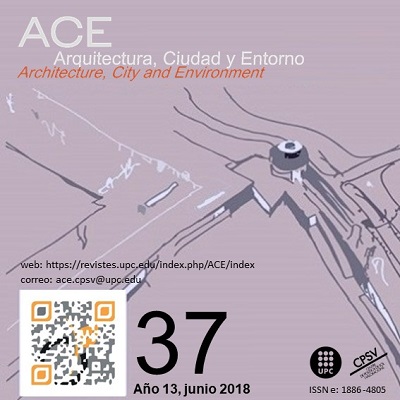Basic criteria for Sustainable Tourism Planning of Cultural World Heritage Sites
DOI:
https://doi.org/10.5821/ace.13.37.5144Keywords:
World Heritage, cultural tourism, historic city, sustainability, managementAbstract
Objective
The center of the research is to identify items that must be considered for sustainable destination planning, in accordance with the practical guidelines for implementing the 1972 World Heritage Convention. With this aim, the most important implications that entails the recognition of UNESCO are reviewed looking forward to the improvement of destination management of the, which should consider a pool of strategies and plans for tourism, designed with some level of agreement between the different World Heritage sites and directed towards a sustainable balance.
Methodology
Based on a review of papers published in journals of Scopus database, related to the impact of tourism in world heritage cities; the analysis was made using the method of content analysis, reviewing the items which tend to mitigate the negative effects of tourism in this kind of destinations, which are fragile due to the complicated coexistence between heritage and contemporary dynamics.
Conclusions
Similar scenarios were identified in most of the World Heritage studied sites. One of the main findings is that in both consolidated and emerging destinations, one of the priority lines of attention is the improvement of tourist destination management.
Originality
A number of conclusions emerge from the work in order to improve the sustainability of destinations, useful both for the actors of the world heritage sites - presenting challenges arising from the crowds of tourist - as for researchers who work comparative incidence of heritage tourism.
Downloads
Published
Issue
Section
License
| INTELECTUAL PROTECTION CRITERIA |
At this moment, it is count with the "Oficina Española de Patentes y Marcas", while global protection it is being processed by the World Intelectual Property Organization (OMPI/WIPO). Nevertheless the International Standard Serial Number Office (ISSN) has given the following numbers ISSN: 1886-4805 (electronic version) and 1887-7052 (paper version). All articles will be peer reviewed, using double blind reviewing. |
| COPYRIGHT |
The article contents and their comments are authors exclusive liability, and do not reflect necessarily the journal editor commitee's opinion. All ACE published works are subject to the following licence CC BY-NC-ND 3.0 ES http://creativecommons.org/licenses/by-nc-nd/3.0/es/ It implies that authors do not hold nor retain the copyright without restrictions but only those included in the licence. |


































